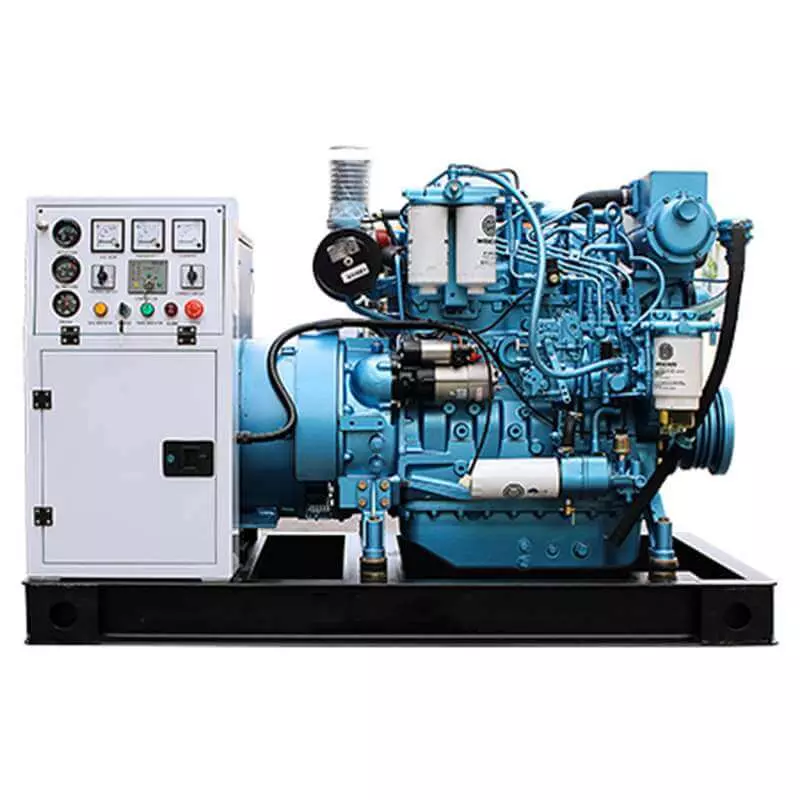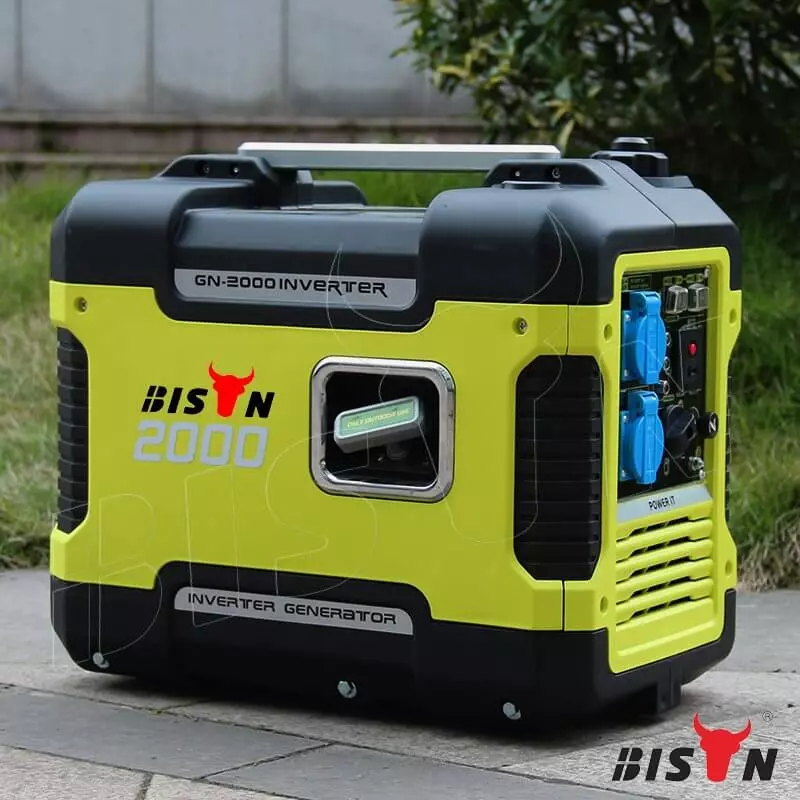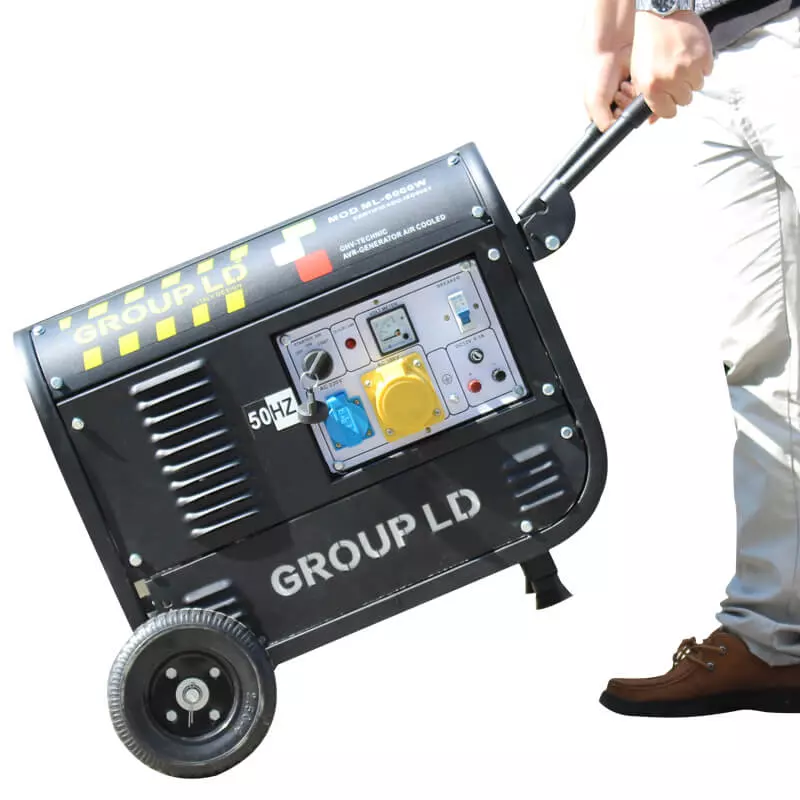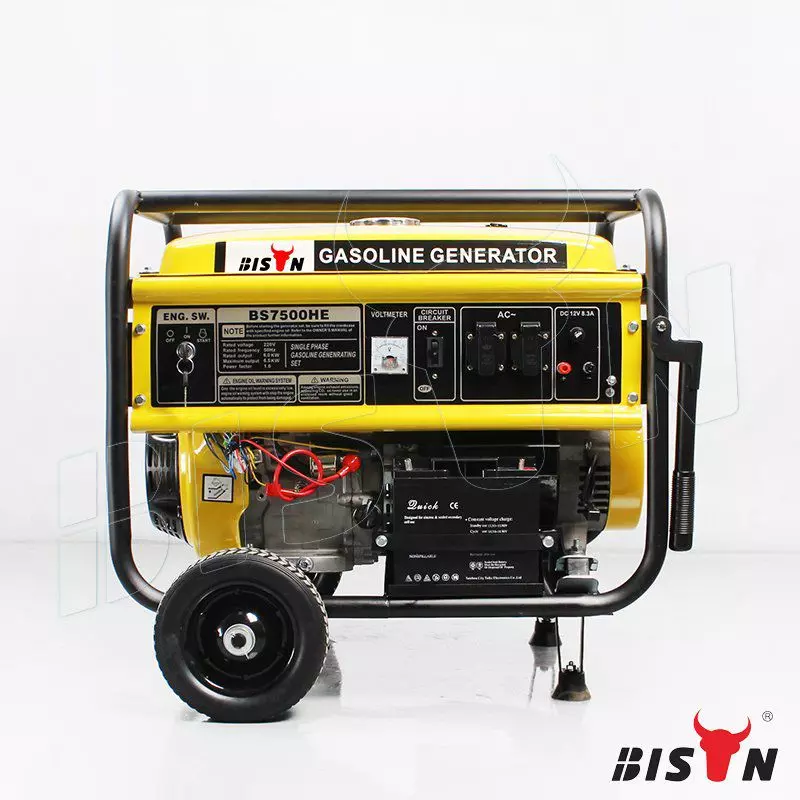Choosing the right size generator: A step-by-step guide
2022-10-17
Table of content

One of the most critical aspects of a purchasing decision is obtaining a generator that can meet all your power generation needs. Whether you're interested in primary or standby power, if your new generator doesn't meet your specific requirements, it won't do anyone any good at all, as it will overstress the equipment or even damage some devices connected to it.
Unfortunately, sizing generators accurately is often complicated and involves many factors and considerations.
The choice between single-phase, three-phase, backup, or motor starter generators can be difficult. This article aims to clear up any confusion by educating you on the sizing procedure and some important considerations. This is no substitute for a certified electrician; we always recommend talking to one before purchasing. Still, it should give you enough information to give you insight into some of the key things involved.
What is wattage?
When choosing a generator, the first thing you should consider is wattage. The total wattage of all the equipment you intend to use the generator for during a power outage or in locations with spotty or no power service should be added up.
This may include refrigerators, lights, laptop chargers, coffee makers, smartphone chargers, washing machines, ovens, etc. You can determine your desired generator size using this calculation.
Remember that some devices, such as air conditioners and refrigerators, consume significantly more power when they are on than when they are off. It would be best if you accounted for these power surges when doing your calculations in order to get the most accurate estimate.
There are some crucial specifications to be aware of when it comes to generators, irrespective of type. These are the surge, running, and starting watts.
Starting watts describes the power a generator can provide for a moment to start an electric motor. This is also sometimes called surge watts.
Running watts describe how much power a generator can deliver at any one time. This is also sometimes called continuous watts.
Standard wattage of common appliances
If you don't know how much power your appliances use, you can use the ranges below to calculate how much wattage you need. Make sure to consider all your appliances.
Fridge or freezer: 600 to 800 watts
Toaster: 1,100 to 1,700 watts
Lamp: 150 watts
Oven (Electric): 5,000 watts
Coffee Machine: 400 to 800 watts
TV: 100 to 350 watts
Hair Dryer: 1,200 to 1,500 watts
Microwave: 1,200 watts
Hot Plate: 1,250 watts
Computer: 500 to 2,000 watts
Space Heater: 1,250 watts
Electric Furnace: 5,000 to 25,000 watts
Vacuum: 700 to 1,400 watts
Water Heater: 2,000 to 4,500 watts
Outdoor Lighting: 500 to 1,00 watts
Radiant Heater: 1,300 watts
Window Air Conditioner: 600 to 1,500 watts
Sump Pump: 1,500 watts
Water Pump: 1,000 to 2,000 watts
Central Air Conditioning System: 2,000 to 4,000 watts
Assess your power needs
Generators come in various sizes and configurations based on your unique requirements and other determining factors. A key step in understanding the generator size required for your business is determining how and where the equipment will be used and the power and wattage required to support all applications.
Whether you need a solution to keep your plant productive/running in the event of a power outage or you need a portable generator set for industrial tools and remote operation, here's a list of everything your generator needs to supply power at any given time.
You can narrow your generator sizing options to a specific capacity range and ascertain the size of the generator you require by calculating your total kVA and kW power requirements.
When sizing generators for certain retail and commercial applications, a square foot measurement system is often used to calculate power requirements, using the following formula:
Retail: kW = 50 kW + 10 watts/sq. ft.
Commercial: kW = 30 kW + 5 watts/sq. ft.
Analyze your site conditions
Now that you have the power rating range and load capacity for your operation, it's time to consider site conditions and generator options. Ask yourself:
● Do I need an emergency, standby, or primary generator?
● Do I need a portable or a standby generator?
● Does my facility have environmental concerns or limited space?
● Are my power requirements single-phase or three-phase?
It is necessary to know the load, fuel type, electrical system connections, and power rating of the generator set to determine the most efficient model.
Other options to consider include altitude and environmental measurements, potential expansion capabilities, voltage, and emissions regulations.
Decide the generator type
Once you understand how you will use your generator, your site conditions, and the power capacity you need, you can focus on choosing the right machine.
Portable and stationary generators are the two primary choices. The majority of businesses only have one location, so static generators are convenient and cost-effective. Fixed options also generate more power, making them ideal if you want backup or primary energy.
Compared to static models, portable generators have lower power capacities and are primarily used as mobile power sources to run equipment on sites without grid access. You can purchase portable options for many applications if you need a generator for temporary projects or events.
Purchasing a single generator vs. paralleling

You might be debating whether it's preferable to use one sizable generator or divide the load among two or smaller ones if your power requirements are sufficiently high. For example, you could install three 400kW generators instead of one 1200kW generator. This is called parallelism and can be a good choice under the right circumstances. The reasons are as follows:
It provides more flexibility
Extra reliability is probably your motivation for purchasing a generator as a safety net against a power outage that would impede or end your company's operations. You won't have to worry about having to shut down a generator for maintenance if you have several. You just transfer the burden to someone else and keep working.
There is only one generator, and if it has to stop, so do you.
More cost-effective
Obviously, economics will vary greatly depending on factors such as brand, new vs. used generators, price in your geographic location, etc. But all things being equal, once you get past a certain generator size, paralleling is more economical than using a single generator.
More practical options
Depending on the size of the room, it might be simpler to fit two or three parallel generators than a large unit. In large commercial generators, a smaller capacity can mean a difference of 25 square feet or more per unit.
It's easier on a generator
Load sharing between two or more generators extends the life of each generator and avoids the risk of overloading a single unit. A load of up to 80% of generator capacity is ideal for continuous use.
Why does choosing the right generator size matter
Engineers and entrepreneurs in the commercial and industrial sectors should realize how much machine maintenance and replacement costs can be saved using a properly sized generator. When you understand how to size generators based on the scope of your operation, you gain the following benefits:
Avoid random generator failures
Once you learn how to size your generator to your business needs, you won't have to worry about downtime caused by a power outage. Given all the money involved in a typical operation, with thousands of interests at stake at any given time, most companies cannot afford any downtime. With the best electric, gas, or diesel generator, you'll never have to deal with:
● Lost revenue due to unforeseen shutdowns.
● Cancellation of public outdoor events due to the insufficient power supply.
● Construction was delayed due to a lack of power supply.
If you run a business that focuses on speed and efficiency and is committed to satisfying all parties involved, whether wholesalers, customers or other business entities. It would be best if you had a generator on your premises or workplace to keep every machine in action.
Avoid shutdowns due to system overload
Another key advantage of using an appropriately sized generator is the maximum power capacity for your operation. You don't have to worry about system failure due to overloaded capacity, as backup generators protect against the following unforeseen situations:
● System failure due to overload of low-capacity power supply.
● System failures due to power surges for a given machine.
● Forced downtime in fully functional mode due to capacity constraints.
Enjoy longer generator life
The short lifespan of a tool or machine is one of the most expensive aspects of industrial operations. It is critical to have a generator that provides the optimum capacity for all items connected in a given system so it does not lose power prematurely. The machine must have enough capacity to handle a full load at all times for the same reason,
When you purchase the right size of generator for commercial use, you'll get the following benefits:
● Total life expectancy for heavy machinery.
● High-tech machines require minimal maintenance, even after years of service.
● Electric, diesel, and natural gas generators have an even longer life expectancy.
● Even after years of heavy-duty use, generator maintenance is rarely required.
Enjoy performance anytime
When replacing or upgrading an older generator, regardless of the size of your overall operation, choosing a generator that can provide you with maximum power 24/7 without interruption is critical. Searching through the generator sizing guide may be the answer to all your questions.
By choosing the right size generator, you can enjoy
● Uninterrupted power supply during snow, wind, and other harsh natural events.
● Continuous power supply when the local system is down.
● Despite the blackout in the area, power remained stable.
● Even if you change or add new components to the system, performance will not be compromised.
Simple, trouble-free maintenance
It's always preferable when it comes to maintenance if the required work is simple and inexpensive. Likewise, a quality generator should rarely experience much trouble during its life cycle, as the best generators can withstand the harshest of use. Even the best generator brands and models, though, occasionally need to be adjusted. With a high-quality generator, you can rest assured:
● The generator needs only simple and minor repairs.
● The duration between maintenance periods is long.
● Performance is so reliable that basic maintenance can prevent maintenance needs for years on end.
● The supply of machines and tools is better, so little maintenance is required.
A system that lasts for many years
When you properly size your generator for a commercial or industrial application, your entire system can end up lasting years or even decades with little to no maintenance or even fewer replacements for any attached machinery. The best backup generators essentially eliminate the need for regular component replacements. In fact, the only reason you might replace any tool or machine in your facility may be a model upgrade.
So with a long-lasting generator, natural gas generator, or diesel generator, you'll find yourself reaping the following benefits:
● An industrial setup that can last for years and probably won't require an upgrade in a given location your entire time.
● A durable, best-in-class generator with constant transport and instant setup almost anywhere.
Ensures the safety of all involved
Safety is paramount when managing a crew of any size. Production, no matter how valuable and vital to your bottom line, is not worth a single injury or loss of life.
When machines and tools rely on generators, each item in the system must have sufficient power without the risk of short circuits or other accidents that could cause electrical or operational failure. Even with a given machine operation at a safe distance from plant personnel, it is important that no component fails, especially not in any way that could set off a chain reaction.
With an appropriately sized generator, you don't have to worry about any of the following:
● Power failure can cause a dangerous system failure.
● Generator-related machine failures result in injuries to plant personnel.
● Domino-style accidents at worksites or mills are caused by faulty generators.
● A lawsuit was brought by plant personnel for generator-related injuries.
Asset damage is minimal
When implementing, upgrading, or replacing a generator, it is critical that no components cause a negative reaction to each other, resulting in costly property damage. Whether it's a new generator purchased for a long-term set of tools and machines, or a new machine hooked up to a used generator, don't act in a way that will cause an adverse reaction. These reactions can result in power outages, blown fuses, machine damage, or product damage.
Understanding how to select the appropriate generator size and capacity for your operation is crucial. It saves you from experiencing:
● A blown fuse prematurely damages the machine.
● A knock-on power failure from one machine or tool to all other machines or tools in the facility.
● Costly damage to plant conveyor systems and surrounding tooling.
Partner with BISON
If you're sizing a standby, commercial, or industrial generator for your business, the experts at BISON can help. Our team can help assess your needs and find the best solution in our extensive inventory.
Already decided on the perfect generator for your project? We are your one-stop shop for reliable wholesale generators, ideal for many industrial applications. Contact us for more details and discuss your project with a representative today.




